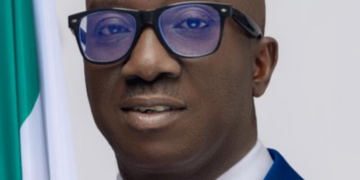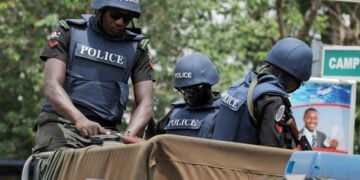In recent weeks, reports across major dailies have laid bare a troubling paradox in Nigeria’s governance. While Nigerian citizens groan under poverty, high cost of living, unpaid gratuities and pension, bad roads and collapsing infrastructure generally, billions of naira are still being poured into the sponsorship of religious pilgrimages.
Governors and other elected officials have continued to bankroll trips to Mecca, Medina, Jerusalem, and Rome, often under the pretext of “social support” or “spiritual upliftment. While this going on, Nigerians are left to contend with decaying hospitals, underfunded schools, and unsafe roads.
The figures are staggering. For instance, in 2023, 13 Governors spent N14.84bn to sponsor no fewer than 4,771 persons on religious pilgrimage. This year, while many states like Kebbi and Lagos did not subsidise Hajj fares for their pilgrims, Governor Nasir Idris and Babajide Sanwo-Olu spent 200 Riyals and 180 Riyals for each of their pilgrims. Sokoto State reportedly gifted 1000 Riyals for each of the 3,200 pilgrims from the state – averaging ₦450,000 per individual.
Niger State is said to have disbursed ₦3.02 billion for its own pilgrims, translating into well over a million naira per person. Ebonyi State took extravagance to an extreme, allocating ₦551 million for only 33 individuals, roughly ₦16.7 million per pilgrim. Across the federation, estimates put combined federal and state expenditures on pilgrimages in 2025 at more than ₦150 billion.
This is not a question of the money spent, but a question of our priorities as a nation. At a time when primary health centres lack drugs, when public schools operate without chairs or textbooks, when thousands of pensioners remain unpaid, and when workers face uncertain futures, the choice to underwrite religious journeys reveals the distorted values that govern public finance.
We must be clear here, because religious issues are very sensitive and highly politicised in this country, this is not an attack on religion. Pilgrimage is a noble obligation for the faithful, an act of devotion that commands respect. But by every religious tradition, pilgrimage is also a personal spiritual duty, not a collective fiscal responsibility of the state. When governments convert taxpayers’ money into pilgrimage subsidies, what is being promoted is not piety but political patronage.
Sponsorship becomes less about faith and more about rewarding loyalists, appeasing political blocs, and burnishing credentials under the guise of devotion.
Beyond misplaced priorities, there is also a constitutional and ethical contradiction. Nigeria is a secular republic. State sponsorship of religious rituals, whether Muslim or Christian, undermines the neutrality required of government in matters of faith. It sets a dangerous precedent in which public funds are routinely hijacked to promote sectarian legitimacy rather than national unity. In an already fragile polity where identity politics is easily weaponised, this practice deepens divisions rather than healing them.
The opportunity cost is unconscionable. Ebonyi’s ₦551 million could have built dozens of rural classrooms or funded the renovation of primary health centres. Sokoto’s ₦1.44 billion could have financed irrigation projects to improve food security in a region facing chronic malnutrition. Niger’s ₦3.02 billion could have cleared outstanding pension arrears and brought dignity back to the lives of the elderly who once served the state. Lagos’s ₦97.4 million could have equipped general hospitals or rehabilitated inner-city roads. Each allocation to pilgrimage boards is a direct subtraction from the welfare of ordinary Nigerians.
Even more troubling is the long-term cultural impact of this spending habit. When leaders routinely fund pilgrimages, it entrenches a culture of entitlement, citizens begin to expect that the state must underwrite their religious obligations. This not only distorts the meaning of faith but also expands the scope of fiscal irresponsibility.
Politicians exploit this expectation, creating cycles of competitive sponsorship between Muslims and Christians that fuel rivalry and drain scarce resources. The inevitable consequence is a state perpetually distracted by religious appeasement while neglecting structural reforms.
What kind of moral example do leaders set when they prioritize trips to holy sites over the sacred duty of ensuring water flows in taps, children learn in safe classrooms, and patients find medicine in hospitals? The true test of leadership is not the ability to sponsor a handful of loyalists to Mecca or Jerusalem but the capacity to create conditions where every citizen can live with dignity.
This newspaper believes that it was time for decisive reform. First, there must be a total ban on the use of public funds for religious pilgrimages. Pilgrimage should be privately financed, as a matter of personal conviction. The state’s legitimate role should be limited to facilitation, such as ensuring visa processing, travel safety, and diplomatic support.
Second, the National Assembly and state legislatures must demand full audits of pilgrimage spending. Every naira disbursed to pilgrimage boards or commissions should be scrutinised.
Transparency is not a favour to the public; it is an obligation in a democracy. The state legislatures and the National Assembly need to wake up to their responsibility.
Third, savings from discontinued pilgrimage sponsorships should be redirected to priority sectors – education, healthcare, water, and infrastructure. If Ebonyi’s half a billion naira had gone into classrooms, or Sokoto’s 1.44 billion into hospitals, the social dividends would have outlasted the fleeting memory of a single religious trip.
Even more importantly, citizens themselves must shift expectations. Faith is not measured in how many are sent to holy lands on public subsidy. True faith is reflected in how honestly, justly, and responsibly leaders govern. Nigerians must demand not tickets to Mecca or Jerusalem but accountable governance, equitable distribution of resources, and investments that lift millions, not dozens.
Our leaders must be reminded that when they stand before history – and indeed, before their Creator, it will not be the number of pilgrims sponsored that will count. It will be the children they educated, the lives they saved, the jobs they created, and the justice they upheld that will count.
The path to righteousness in governance does not run through Medina or Jerusalem at taxpayers’ expense. It runs through the villages where clean water is still a dream, the hospitals where patients wait in vain for drugs, and the classrooms where teachers struggle to hold lessons under leaking roofs. This is where true service lies.
We call for courage, let this year mark the end of pilgrimage politics and the beginning of a governance culture anchored on service, equity, and accountability.




